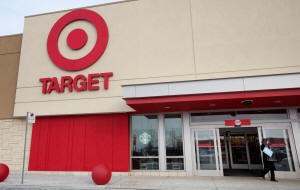|
Shares of the big box retailer, which have fallen nearly 16%
this year, surged about 8% in premarket trading as
second-quarter inventory dropped and the company held back on
steep discounts.
Target, which largely sells non-essential items like electronics
and home decor, has been trying to balance its merchandise by
adding more daily-use products as consumers limit their spending
to necessary items amid rising prices.
Inventory fell 17% in the second quarter, with a 25% drop in
discretionary items in its stock, Target said.
"We are seeing food and beverage and household essentials
absorbing a larger portion of the US consumers wallet," Target
CEO Brian Cornell said.
"Guests are out at concerts, they are going to movies ... they
are enjoying those experiential moments and are shopping very
carefully for discretionary goods."
As a result, the retailer's quarterly revenue dropped 5% and it
missed expectations.
Sales also took a hit from the backlash against "adjustments" to
its Pride merchandise, company executives said while promising
to be careful with its partnerships while celebrating heritage
moments.
"As we navigate an ever-changing operating and social
environment, we are applying what we learned," Cornell said.
Target now expects annual comparable sales to decline in the
mid-single digit range compared to its prior forecast of
low-single digit decline to a low-single digit increase.
It expects 2023 adjusted profit per share between $7 to $8,
compared with the prior range of $7.75 to $8.75.
"(Results are) kind of a mixed bag ... I think people were
expecting probably a much worse second quarter," Telsey Advisory
Group analyst Joseph Feldman said.
On an adjusted basis, Target earned $1.80 per share in the
quarter ended July 29, beating expectations of $1.39.
Bigger rival Walmart is set to report earnings on Thursday.
(Reporting by Ananya Mariam Rajesh and Savyata Mishra in
Bengaluru; Editing by Arun Koyyur)
[© 2023 Thomson Reuters. All rights
reserved.]
This material may not be published,
broadcast, rewritten or redistributed.
Thompson Reuters is solely responsible for this content.

|
|




